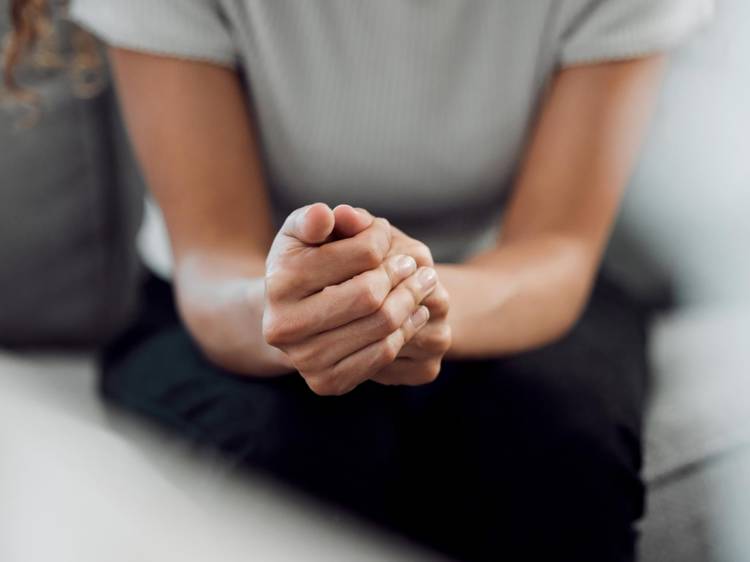Call us for a consult
(506) 738-4400


Psychiatry focuses on the study, diagnosis, and treatment of mental, emotional, and behavioral disorders and assessing both the mental and physical aspects of psychological conditions.
Psychiatry services are offered both in-person and virtually.
Assessment / Diagnostic Services

Comprehensive evidence-based assessment to identify and diagnose mental health disorders, including applicable testing, reporting and consultation.
Treatment Services

Access our extensive list of treatment modalities.
Independent Medical Examinations (IME)

Objective single and interdisciplinary third-party assessments tailored to organizations/insurance companies. This service provides a medical file review, comprehensive psychiatric examination and assessment, and an evidence-based report providing medical evaluation, opinion and recommendations on diagnosis, causation, prognosis and treatment recommendations.
Independent File Review

Review and analysis of medical records, history, previous medical assessments and other relevant information, with an evidence-based report or review tailored to organizations/insurance companies.

Comprehensive evidence-based assessment to identify and diagnose mental health disorders, including applicable testing, reporting and consultation.

Access our extensive list of treatment modalities.

Objective single and interdisciplinary third-party assessments tailored to organizations/insurance companies. This service provides a medical file review, comprehensive psychiatric examination and assessment, and an evidence-based report providing medical evaluation, opinion and recommendations on diagnosis, causation, prognosis and treatment recommendations.

Review and analysis of medical records, history, previous medical assessments and other relevant information, with an evidence-based report or review tailored to organizations/insurance companies.
Major Depressive Disorder (MDD)

A mood disorder that causes a persistently low or depressed mood, feelings of sadness or hopelessness, and loss of interest in activities. Major depressive disorder or clinical depression involves one or more episodes of intense depression that lasts two or more weeks. MDD can result in various emotional and physical problems and is often accompanied by irritability, low energy, decreased concentration, sleep changes, weight gain or loss, feelings of helplessness, worthlessness or guilt, and sometimes suicidal tendencies.
Post-Traumatic Stress Disorder (PTSD)

An anxiety disorder that develops from witnessing or experiencing a traumatic, frightening, stressful or distressing life event. Often PTSD involves intense fear, helplessness, stress, intrusive thoughts, nightmares or flashbacks about the incident, recurrent distress/anxiety and avoidance of similar situations. Reactions of fear or distress are out of proportion to the situation.
Anxiety Disorders

This includes intense, excessive and persistent worry and fear about everyday situations, characterized by repeated episodes of sudden feelings of intense anxiety, panic, fear or terror that reach a peak within minutes (panic attacks). Feelings of anxiety and panic interfere with daily activities and are difficult to control. Symptoms of anxiety include feeling nervous, feelings of impending danger, physical signs such as increased heart rate, sweating or trembling, also trouble sleeping and concentrating.
Treatment-Resistant Depression (TRD)

MDD that does not respond to treatment is referred to as Treatment-Resistant Depression. It is characterized by substantial functional impairment and is a form of depression that does not improve despite the use of multiple and adequately dosed antidepressant medications. Common first-line treatments of TRD are pharmacotherapy and psychotherapy, or both. CANMAT now endorses TMS as a first line therapy for TRD.
Alcohol or Drug Addiction

A substance use disorder is a brain disease that involves harmful, compulsive, chronic, physiological or psychological dependence on a habit-forming substance. It affects a person's brain and behaviour and leads to an inability to control the use of a legal or illegal drug or medicine. Addiction often involves intense urges for the substance that block out any other thoughts and taking large amounts of the substance over a longer period of time than intended. It is characterized by extreme cravings, anxiety or nervousness, restlessness and irritability, headaches, sleep problems, changes in mood, tremors, or nausea upon withdrawal or abstinence.
Concurrent Disorders

Concurrent disorder or comorbidity is both a mental illness and substance use problem. It includes a wide combination or range of problems, such as anxiety or mood disorders combined with an alcohol addiction or cannabis dependence. Substance use can worsen mental health problems and can often hide the symptoms of mental health disorders. Concurrent disorders can result in significant medical, social and emotional problems.

A mood disorder that causes a persistently low or depressed mood, feelings of sadness or hopelessness, and loss of interest in activities. Major depressive disorder or clinical depression involves one or more episodes of intense depression that lasts two or more weeks. MDD can result in various emotional and physical problems and is often accompanied by irritability, low energy, decreased concentration, sleep changes, weight gain or loss, feelings of helplessness, worthlessness or guilt, and sometimes suicidal tendencies.

An anxiety disorder that develops from witnessing or experiencing a traumatic, frightening, stressful or distressing life event. Often PTSD involves intense fear, helplessness, stress, intrusive thoughts, nightmares or flashbacks about the incident, recurrent distress/anxiety and avoidance of similar situations. Reactions of fear or distress are out of proportion to the situation.

This includes intense, excessive and persistent worry and fear about everyday situations, characterized by repeated episodes of sudden feelings of intense anxiety, panic, fear or terror that reach a peak within minutes (panic attacks). Feelings of anxiety and panic interfere with daily activities and are difficult to control. Symptoms of anxiety include feeling nervous, feelings of impending danger, physical signs such as increased heart rate, sweating or trembling, also trouble sleeping and concentrating.

MDD that does not respond to treatment is referred to as Treatment-Resistant Depression. It is characterized by substantial functional impairment and is a form of depression that does not improve despite the use of multiple and adequately dosed antidepressant medications. Common first-line treatments of TRD are pharmacotherapy and psychotherapy, or both. CANMAT now endorses TMS as a first line therapy for TRD.

A substance use disorder is a brain disease that involves harmful, compulsive, chronic, physiological or psychological dependence on a habit-forming substance. It affects a person's brain and behaviour and leads to an inability to control the use of a legal or illegal drug or medicine. Addiction often involves intense urges for the substance that block out any other thoughts and taking large amounts of the substance over a longer period of time than intended. It is characterized by extreme cravings, anxiety or nervousness, restlessness and irritability, headaches, sleep problems, changes in mood, tremors, or nausea upon withdrawal or abstinence.

Concurrent disorder or comorbidity is both a mental illness and substance use problem. It includes a wide combination or range of problems, such as anxiety or mood disorders combined with an alcohol addiction or cannabis dependence. Substance use can worsen mental health problems and can often hide the symptoms of mental health disorders. Concurrent disorders can result in significant medical, social and emotional problems.
Cognitive Behavioural Therapy (CBT)

A form of psychological treatment that is effective for various problems, including depression, anxiety disorders, alcohol and drug use problems, and severe mental illness. It is a common type of talk therapy (psychotherapy). This is a structured program where you will attend a specified number of sessions. CBT can help you identify and cope with specific challenges and become aware of inaccurate or negative thinking. It helps you see situations more clearly and respond to them in a more effective way. CBT can be used either alone or in combination with other therapies in treating mental health disorders.
Psychotherapeutics Management

Management of treatments for mental health disorders based primarily on verbal or nonverbal communication and interventions.
Psychodynamic Psychotherapy

A form of talk therapy that is based on talking to a professional about problems to help find relief and reach solutions. It emphasizes patient relationships and working to improve them, with the goal of achieving greater happiness and satisfaction.
Group Therapy

Interpersonal group psychotherapy where our psychiatrist will guide the group process and provide structure, usually occurring 1-2 hours weekly.
Pharmacotherapy

Treatment of mental health disorders or addiction by using pharmaceutical products (drugs) as medication. Pharmacotherapy is part of a comprehensive treatment plan involving replacement of the drug that is depended on with a legally prescribed substitute which can help to reduce the intensity of withdrawal symptoms, drug cravings and the likelihood of continued use. The use of prescribed medications is often combined with counselling and behavioural therapies to treat addiction.
Pharmacological Review

Review of medications and compliance, potential side effects and medication management.
Coordinated Care

Our psychiatrists, psychologists and social workers coordinate their efforts and work as an interdisciplinary mental health team to manage and provide the highest standard of care and ensure the best possible outcome.
Neuronavigated TMS (NrTMS)

A state-of-the-art, non-invasive, drug-free treatment for treatment-resistant depression.

A form of psychological treatment that is effective for various problems, including depression, anxiety disorders, alcohol and drug use problems, and severe mental illness. It is a common type of talk therapy (psychotherapy). This is a structured program where you will attend a specified number of sessions. CBT can help you identify and cope with specific challenges and become aware of inaccurate or negative thinking. It helps you see situations more clearly and respond to them in a more effective way. CBT can be used either alone or in combination with other therapies in treating mental health disorders.

Management of treatments for mental health disorders based primarily on verbal or nonverbal communication and interventions.

A form of talk therapy that is based on talking to a professional about problems to help find relief and reach solutions. It emphasizes patient relationships and working to improve them, with the goal of achieving greater happiness and satisfaction.

Interpersonal group psychotherapy where our psychiatrist will guide the group process and provide structure, usually occurring 1-2 hours weekly.

Treatment of mental health disorders or addiction by using pharmaceutical products (drugs) as medication. Pharmacotherapy is part of a comprehensive treatment plan involving replacement of the drug that is depended on with a legally prescribed substitute which can help to reduce the intensity of withdrawal symptoms, drug cravings and the likelihood of continued use. The use of prescribed medications is often combined with counselling and behavioural therapies to treat addiction.

Review of medications and compliance, potential side effects and medication management.

Our psychiatrists, psychologists and social workers coordinate their efforts and work as an interdisciplinary mental health team to manage and provide the highest standard of care and ensure the best possible outcome.

A state-of-the-art, non-invasive, drug-free treatment for treatment-resistant depression.
Our interdisciplinary team of psychiatrists, psychologists, social workers, nurses, and counsellors work together with clients to provide personalized assessment and treatment solutions. They are supported by a wide range of specialists and researchers in occupational medicine, physiatry, orthopedics, concussion/mTBI and radiology to address the holistic and diverse needs of the client.